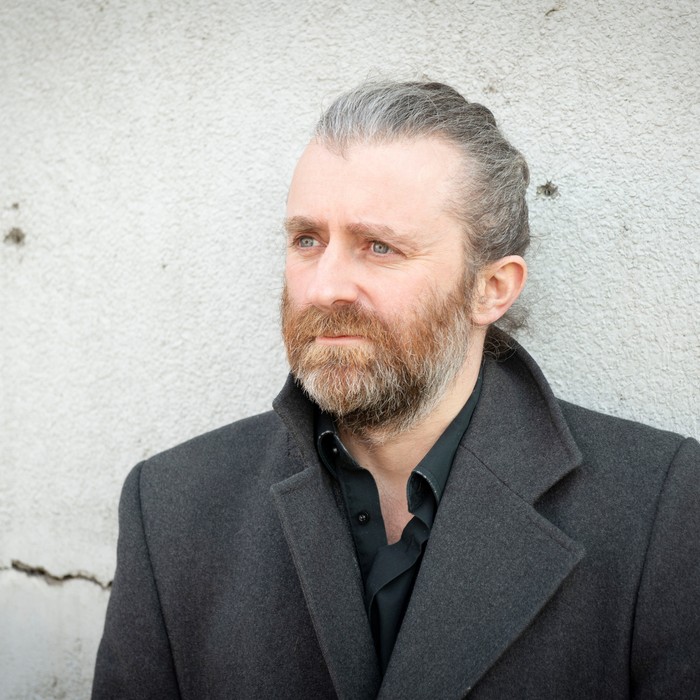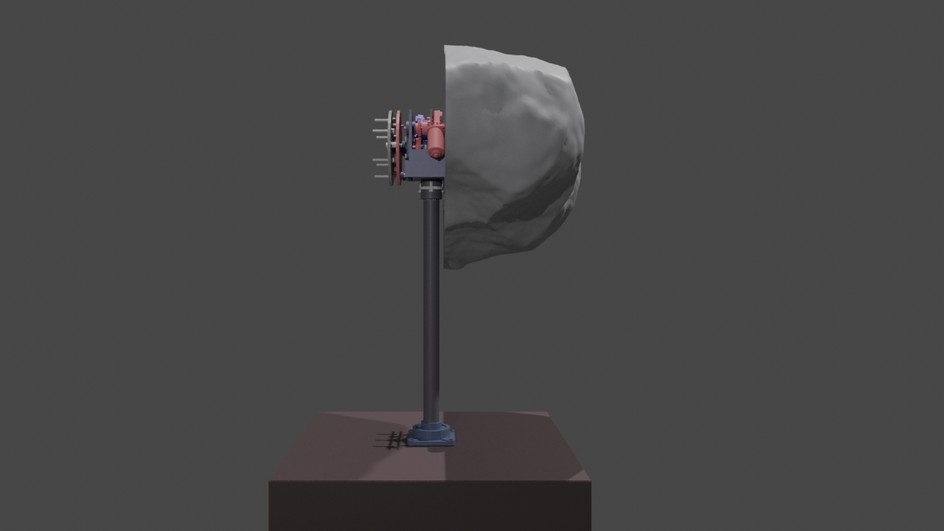
Visiting artist professor
2021 - 2022
Kris Verdonck
Born in 1974 in Anvers (Belgium)
Kris Verdonck (born 1974) studied visual arts, architecture and theatre and this training is evi-dent in his work. His creations are positioned in the transit zone between visual arts and theatre, between installation and performance, between dance and architecture. As a theatre maker and visual artist, he can look back over a wide vari-ety of projects.
He directed theatre productions and produced various installations, a.o. 5 (2003), Catching Whales Is Easy (2004), II (2005). The first Stills, consisting of gigantic projections, were commis-sioned by La Notte Bianca in Rome. In 2007 he created the theatrical installation I/II/III/IIII, while in 2008 End premièred at the Kunstenfestivalde-sarts in Brussels.
Variation IV was shown during the Festival d'Avignon in 2008. In 2010 Kris Verdonck finished the 'circuit performance' Actor #1. K, a Society, premièred at Theater der Welt 2010. In 2011 Verdonck presented two research projects: Talk sets out to explore language, while Exit, created with Alix Eynaudi, aims to tackle theatre as a medium. In the same year, his first solo exhibition was held at House for contemporary art Z33 together with a new work: Exote. In 2012 Verdonck created M, a Reflection: a theatre production with texts by Heiner Müller. Untitled (2014) was a solo creation for the Spanish dancer and performer Marc Iglesias. Isos (2015), is a 3D video-installation based on the world and characters of J.G. Ballard, was presented at the International Film Festival Rotterdam 2016. In Void (2016), an installation circuit about human absence, premiered in the Kaaistudio's. A symposium on the artistic practice of Kris Verdonck was organised in the Martin E. Segal Theatre Center (City University of New York).
In 2017, ICK Amsterdam recreated and toured I/II/III/IIII. In September 2017, he made Conversa-tions (at the end of the world) with actors Johan Leysen, Jan Steen, Jeroen Van der Ven, José Kuijpers and pianist Marino Formenti.
In April 2019, the new installation Detail was presented at BOZAR. The performance Something (out of nothing) premiered at Kunstenfestivaldes-arts 2019. In it four dancers share the stage with noise cello player Leila Bordreuil. Parallel to the stage work, Bogus I-III was presented at KANAL - Centre Pompidou.
In 2020 Verdonck collaborated with Johan Leysen for Act. Act focusses on the work of Samuel Beckett and continues Verdonck's interest in a state of being between object and subject and between absence and presence.
The research Kris will do at Le Fresnoy is a continuation of the technical principes behind the installation Detail (2019). This technical prin-ciple is based on the thinking of the Bauhaus school, where a sustainable balance between man and industry was envisaged. The idea is to look at energy as an ever evolving, unstable, natural phenomenon, and so the machines that are empowered by this source should also follow this natural instability (Instead of being stabilised by condensators or batteries).
In the installation Detail, a large and massive boulder hangs from the ceiling. It is hanging by a steel cable, on a ball bearing, allowing it to fully turn around its axis. The ball bearing is put in motion by a steel wheel rotated by a motor which takes its energy from solar panels. The whole chain leads to a relatively simple situa-tion: whenever the sun shines, the boulder turns around its axis, when there is more sunlight, the stone will turn faster, at night nothing happens, when a cloud passes in front of the sun, the rock halts for a moment. And so it becomes a "living entity", with its own "mode de vie", and a direct relationship with its source of life: the sun.
The whole technical construction has no other goal than to have the "poetry" of a heavy colossus float and turn around. Detail is in this sense a pointless use of knowledge and mate-rial which makes it even all the more alienating. The question can also be put forward as to whether many other developments that we call "technical progress" really do help the world. The destructive potential of ever greater, faster, more efficient and automatic algorithms, proces-sors, motors and fire power assert their influence on a daily basis in wars and in the depletion of our planet. Where is technological knowledge taking us and does it make us able to handle the problems of our age for the most part caused by "technological progress"?

